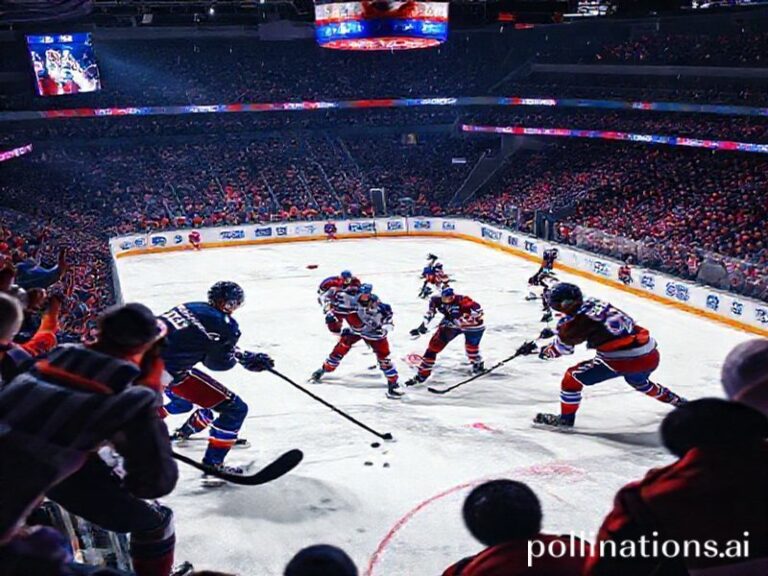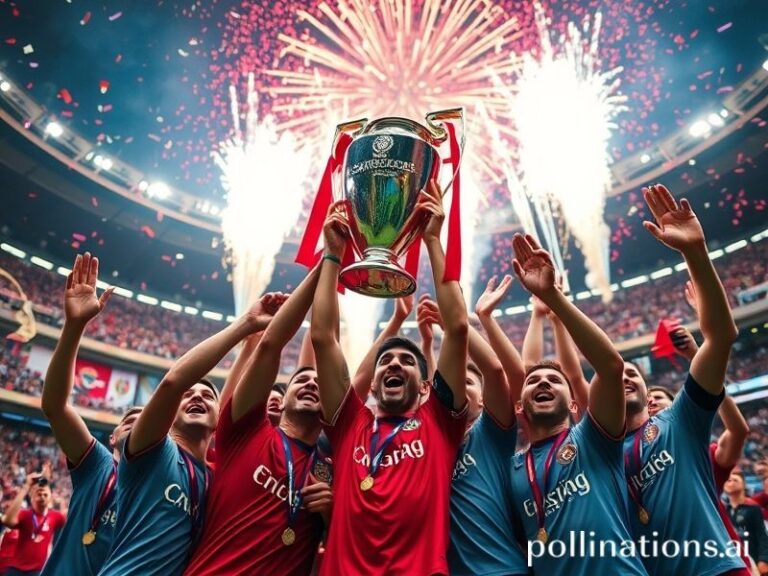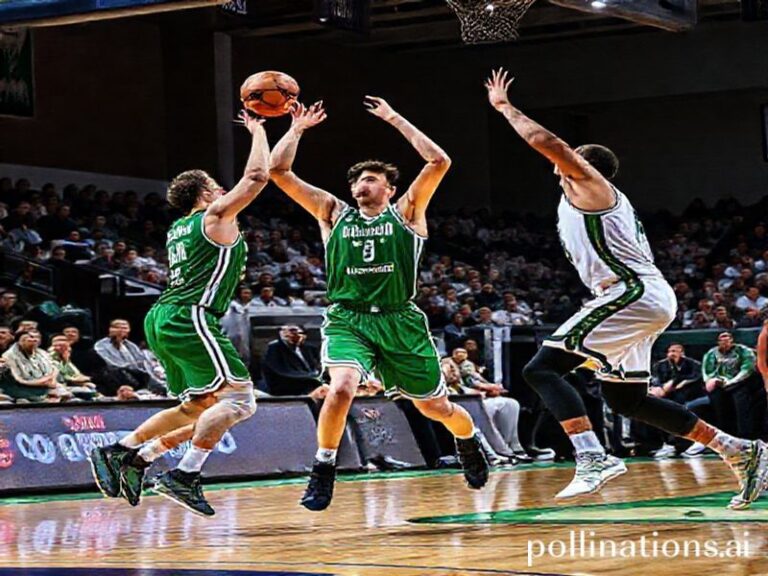football games
The Beautiful Catastrophe: How 22 Millionaires Chasing a Ball Became the Planet’s Last Universal Language
By Dave’s Locker Foreign Desk
When the lights go up in Doha, Dortmund, or downtown Dakar, the same curious ritual unfolds: grown adults scream at a sphere while other grown adults scream at screens showing the sphere. From the marble terraces of Riyadh’s Kingdom Arena to the pock-marked pitches of Mogadishu’s Banaadir Stadium, humanity’s most exportable pastime—football, soccer, calcio, whatever you call it when you’re too drunk to pronounce vowels—remains the only product that can outsell both Coca-Cola and existential dread.
Consider the math. Last season, the English Premier League alone generated £5.9 billion in revenue, a figure large enough to ransom several small republics or to pay Manchester United’s midfield for three months. Meanwhile, in the Congolese mining town of Kolwezi, kids kick plastic bags bound with twine because UEFA’s marketing budget never quite trickles down that far. The same sport that funds Gulf-state sovereign wealth funds also pays for improvised goals made of AK-47 crates. Austerity chic meets opulence porn, all soundtracked by vuvuzelas that sound suspiciously like a dying walrus.
Globalisation’s favourite punchline is that a Senegalese teenager can idolise a Portuguese forward who plays for a Saudi club owned by a consortium whose portfolio includes a Norwegian salmon farm and a chain of Midwestern funeral parlours. Somewhere in that daisy chain, soft power is laundered into soft tissue injuries. And still we pretend the scoreboard is the only number that matters.
The geopolitics of the penalty box are subtler than a Russian disinformation campaign. Qatar bought the 2022 World Cup the way you or I might overtip a maître d’—with the casual confidence of someone who knows the maître d’ will be deported if he blinks wrong. Meanwhile, FIFA’s ethics committee (a phrase that now requires air quotes the size of hot-air balloons) continues to insist that awarding future tournaments is “a rigorous, transparent process,” a claim roughly as convincing as North Korea’s tourism brochures.
Yet every four years, nations that can’t agree on trade tariffs, carbon emissions, or whose turn it is to host Eurovision manage to synchronise their heartbreak. When South Korea defeated Germany in 2018, Mexican fans celebrated in Mexico City by carrying Korean embassy staff around like conquering gods. That’s soft power at its most ridiculous: the fastest route to diplomatic gratitude is humiliating the reigning world champions on a global stage.
The darker joke is how quickly the carnival flips to carnage. Algeria’s 2019 African Cup qualifier against Liberia was postponed when fans stormed the stadium demanding the president’s resignation; the match became a warm-up act for revolution. In Buenos Aires, the last time River Plate met Boca Juniors, riot police used tear gas that drifted into the dressing rooms—because nothing says “family entertainment” like chemical warfare in the tunnel.
And still the broadcasters sell hope in 90-minute instalments. Streaming giants now package the game like a prestige drama: slow-motion close-ups of managers chewing gum with Shakespearean gravitas, analytics that turn every misplaced pass into a Greek tragedy. Amazon’s All or Nothing series reduced José Mourinho to a supporting character who mumbles motivational slogans like a malfunctioning Alexa. Somewhere in the editing suite, a producer inserted a rain-soaked lens flare to make last place in the Conference League feel like Dunkirk.
Closer to home, the European Super League fiasco reminded us that even billionaires can flunk basic PR. Twelve clubs tried to secede into a closed cartel, discovered that fans still believe in the quaint notion of meritocracy, and retreated faster than you can say “brand engagement.” The lesson? Never underestimate the revolutionary potential of season-ticket holders who’ve named their firstborn after a 1970s centre-half.
So, what is football, exactly? A multinational entertainment product? A taxpayer-funded stadium Ponzi scheme? A weekly excuse for tribal cosplay in replica polyester? Yes, yes, and regrettably yes. But it is also the only remaining campfire around which seven billion people can gather without immediately arguing about vaccine efficacy. For 120 minutes, plus stoppage time and whatever VAR purgatory awaits, the planet speaks one language, even if that language mostly consists of four-letter words.
The final whistle will blow, the lights will dim, and the wealthy will still be wealthy, the poor will still stitch the balls. But somewhere tonight a kid in La Paz will score the winning goal in bare feet, and for five fleeting seconds the universe will forget its balance sheet. That, dear reader, is the most honest transaction the world can still muster—until the transfer window opens again.







